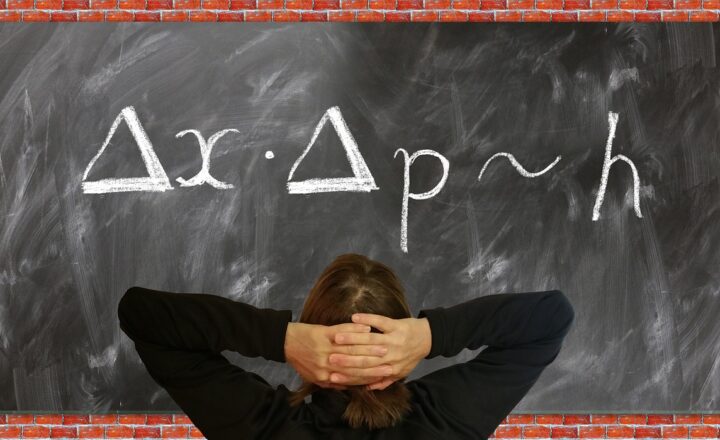Why Humans Are Fascinated With the Idea of Time Travel and Parallel Universes
November 17, 2024

Time travel and parallel universes have long captivated the human imagination, serving as themes explored in literature, film, and scientific dialogue. These concepts blur the lines of reality, presenting extraordinary possibilities that challenge our understanding of time and existence. In this article, we delve into why humans are so fascinated with these ideas, exploring the psychological, scientific, and cultural dimensions that underpin this enduring curiosity.
—
### 1. The Allure of Escaping Reality
At the heart of our fascination with time travel is the desire to escape the confines of our reality. Life can often be mundane and filled with regrets about the past or anxieties about the future. The notion of traveling back to a pivotal moment allows individuals to rectify mistakes, relive cherished memories, or gain closure on unresolved issues. Similarly, future travel offers a glimpse into possibilities beyond our current understanding, stirring hopes and dreams of change.
#### The Psychological Aspect
From a psychological standpoint, time travel offers a form of control over our lives. The human mind naturally yearns to rewrite narratives, creating an imaginative outlet for coping with disappointment and regret. This concept can be seen across various narratives, from classic literature like H.G. Wells’ “The Time Machine” to modern films and series like “Interstellar” and “Dark.” Each story presents characters who, through time travel, seek redemption or new beginnings, reflecting an intrinsic desire for control.
—
### 2. Science Fiction: Shaping Our Perception
Science fiction has played a pivotal role in cementing our interest in time travel and parallel universes. Iconic works from authors like Philip K. Dick, Isaac Asimov, and Kurt Vonnegut explore complex, thought-provoking narratives that challenge our perceptions of reality. Movies like “Back to the Future” and “Avengers: Endgame” showcase thrilling adventures that reduce the concept of time travel into an accessible and entertaining format.
#### The Theoretical Foundations
The scientific foundations supporting the idea of time travel stem predominantly from Einstein’s theory of relativity. Concepts like wormholes and time dilation present theoretical means to traverse through time. These scientific theories, combined with the imaginative storytelling of science fiction, allow the audience to explore possibilities beyond traditional boundaries. The combination of fact and fiction fuels interest while prompting discussions around the nature of reality.
—
### 3. Quantum Physics and the Multiverse Theory
Parallel universes, often linked to time travel, are a fascinating extension of quantum physics. The idea that multiple realities exist simultaneously—each diverging at different points of decision—opens the door to endless possibilities. But why does this intrigue us so much?
#### Embracing Choices and Consequences
The multiverse theory suggests that every choice we make creates a branching pathway in existence. This idea appeals to our understanding of free will and the weight of our decisions. Each story about multiverses allows individuals to explore the impact of different choices in alternate realities, fostering a profound understanding of identity and consequence.
#### Cultural Impact
Movies like “Spider-Man: Into the Spider-Verse” and TV shows like “Rick and Morty” play on this fascination by showcasing different versions of familiar characters within various universes. These explorations provoke reflection on personal choices, and how slight changes could lead to vastly different outcomes in life, all while maintaining an engaging narrative format.
—
### 4. The Philosophical Dimensions of Time
Philosophers have long engaged with the concept of time, posing questions about its nature and existence. Is time linear, cyclical, or simply a construct of human perception? Philosophers like Parmenides and Zeno grappled with paradoxes that reflect the intricacies of time. Our fascination with time travel intersects deeply with these philosophical inquiries, leading to intriguing discussions on existence and consciousness.
#### The Nature of Reality
Time travel challenges traditional notions of reality by proposing scenarios that question causality. What happens when someone travels back in time and alters a significant event? The implications ripple through time and space, prompting questions about determinism and the nature of existence itself. This philosophical ambiguity adds another layer to our fascination, encouraging exploration of complex theoretical dilemmas.
—
### 5. Cultural and Societal Reflections
The preoccupation with time travel and parallel universes often reflects societal concerns and beliefs. Different eras have manifested unique interpretations of these concepts, carving out varying cultural narratives.
#### Historical Contexts
During times of significant change, such as the industrial revolution, narratives surrounding time travel were prevalent as individuals grappled with rapid societal shifts. In contemporary society, as we face issues like climate change and technological disruption, the exploration of alternate realities may serve as a coping mechanism, allowing us to imagine alternative futures and solutions.
—
### Conclusion
The fascination with time travel and parallel universes digs deep into the psyche of humanity, intertwining our desires, fears, and hope. It offers a mirror reflecting our collective human experience and individual struggles while providing an avenue for speculative imagination. Whether through literature, media, or scientific exploration, these themes will continue to resonate with us as they challenge the very fabric of reality, time, and existence.
In essence, time travel and parallel universes encapsulate our longing for exploration, our desire for redemption, and our curiosity about the limits of existence. The journey into these fascinating realms is not just about the concept of escaping reality but understanding our place within it, a challenge we eagerly embrace across generations.








